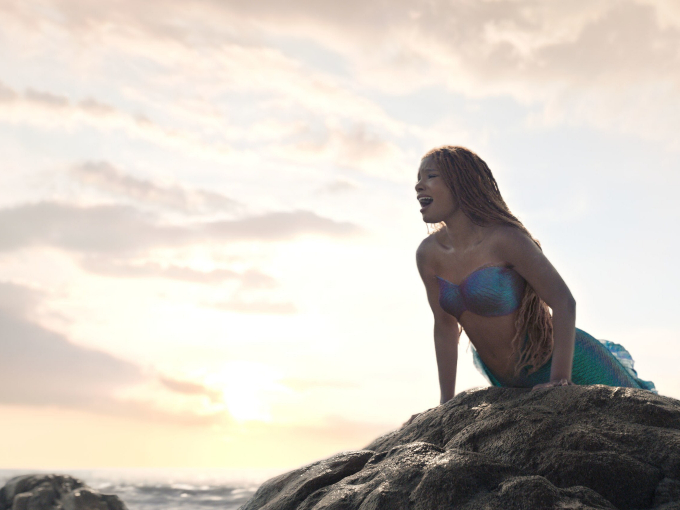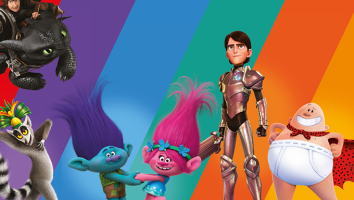By Ryan Tuchow and Andrea Hernandez
If anyone was wondering how a more inclusive modern-day reboot of a classic animated film would resonate with US audiences, they have their answer now.
The debut of Disney’s highly anticipated The Little Mermaid, starring Black actor Halle Bailey in the role of Ariel, dominated the coveted Memorial Weekend box office in the US, ringing up an estimated US$164 million in global ticket sales. This reboot of 1989’s original 2D-animated film posted the fifth-best Memorial Day opening weekend of all time, illustrating a latent demand for more diverse family-friendly entertainment on the big screen.
For many, the film was a long time coming. According to a recent Paramount/Noggin report, nearly three-quarters of Black kids say it’s important to see their race represented on screen. Half of Asian and Hispanic kids feel the same way, and only one-third of white kids say they want to see more white people on screen.
There’s clear evidence that films with inclusive and authentic representation have better box-office returns than those that lack it, says Josanne Buchanan, a kids media consultant who has worked with DreamWorks Animation, Nickelodeon Animation and Netflix to bring diversity into their projects.
Medium- to big-budget films with “authentic and inclusive representation” make around 20% more in their opening weekends than other films do, according to a 2022 report from UCLA’s Center for Scholars and Storytellers. This can add up to anywhere from US$13 million to US$55 million in revenue. (The Little Mermaid‘s budget was reportedly US$250 million.)
Better representation extends beyond casting to include stories and characters that reflect real aspects of different cultures and avoid stereotypes. “Films with authentically diverse casts and crews, featuring authentic depictions of specific identities and experiences, speak to audiences more effectively than other films, which translates into widespread praise and higher earnings,” says Buchanan.
Beyond box-office returns, projects like The Little Mermaid go a long way towards resonating with Black children who have long been underrepresented, says Kisha McPherson, an assistant professor in Toronto Metropolitan University’s school of professional communication and co-director of its Children’s Media Lab. “Kids need to see and experience the reality of the spaces they will inhabit in the real world. This means the media needs to prioritize fair, accurate and balanced representation of people and their voices so that we build stronger cultural understanding to reduce any fear of difference.”
But it’s not just kids who need and want more representation; their parents crave it, too, says Kids Industries CEO Gary Pope. Adults want content that helps their children better understand other cultures and teaches them about cultural diversity, he says.
In Kids Industries’ latest Global Family Survey, conducted in January 2023, 73% of parents said they agreed that productions need to have a diverse cast. Parents also want this to extend behind the camera—one in five said companies should have diverse people on their creative and production teams.
For Erica Shallow, senior manager of development at Nelvana, representation has to start behind the screen. “More Black writers, producers and directors need to have seats at the table in order to help affect change and tell authentic stories,” she says. For example, Disney tapped Puerto Rican composer Lin-Manuel Miranda (Encanto, Hamilton) for The Little Mermaid’s original music, giving the film the same kind of organic authenticity that bolstered both Moana and Encanto.
Helena Dare-Edwards, senior research manager at Childwise, says Marvel’s Black Panther (2018) was a groundbreaking moment in Black representation. The movie showed young Black boys that they can be heroes, too; and now The Little Mermaid is doing the same thing for young Black girls.
In general, companies of any size—and also independent producers—can do more to highlight diversity, including the representation of LGBTQ kids, Dare-Edwards says.
“Today’s audiences have high moral expectations for companies,” adds Buchanan. “Viewers expect companies to act on their written commitments to diversity and inclusion…Without this, they will lose the trust (and eyeballs) of viewers, and also the opportunity to attract cutting-edge talent from underrepresented communities.”



























